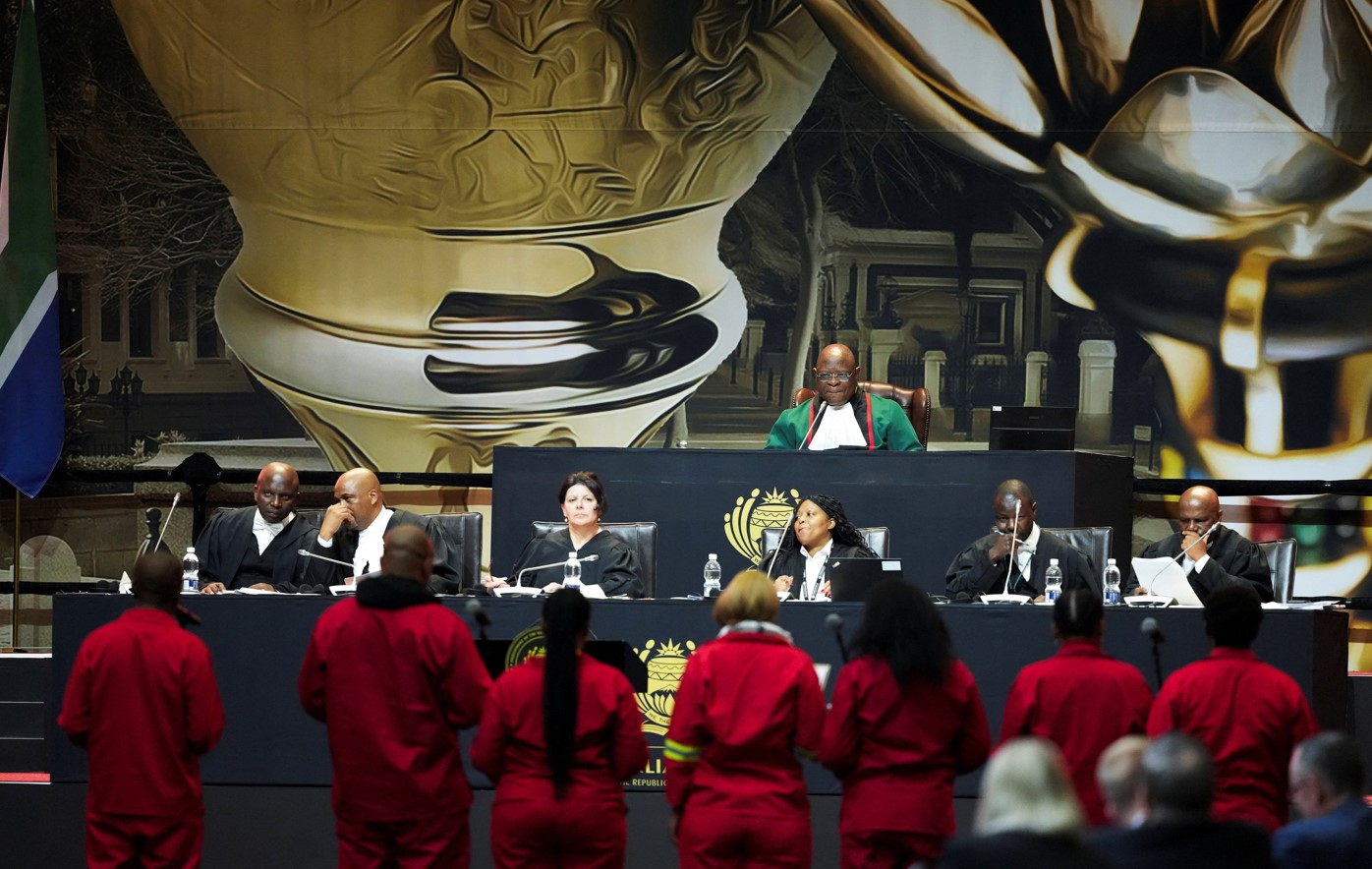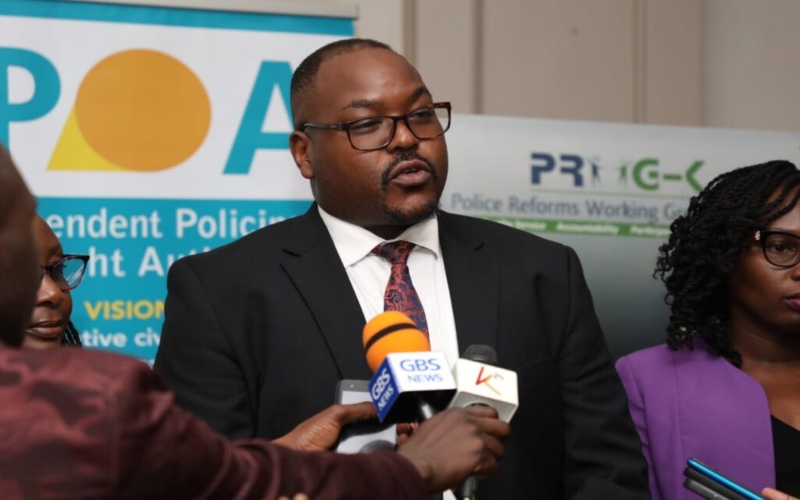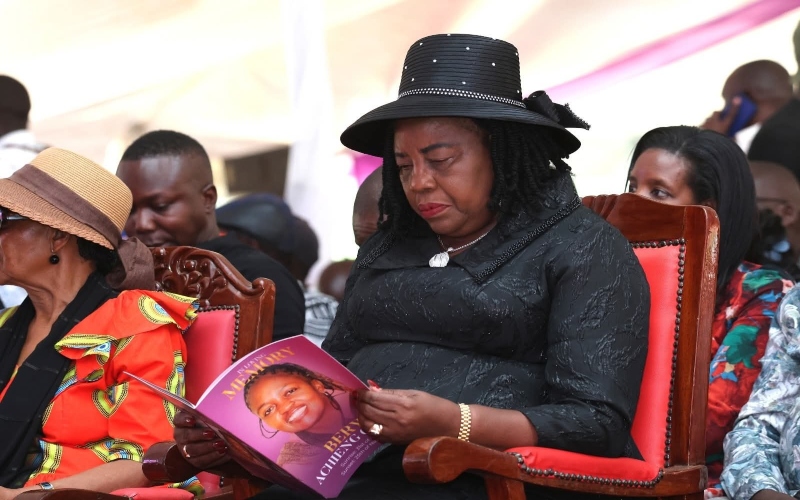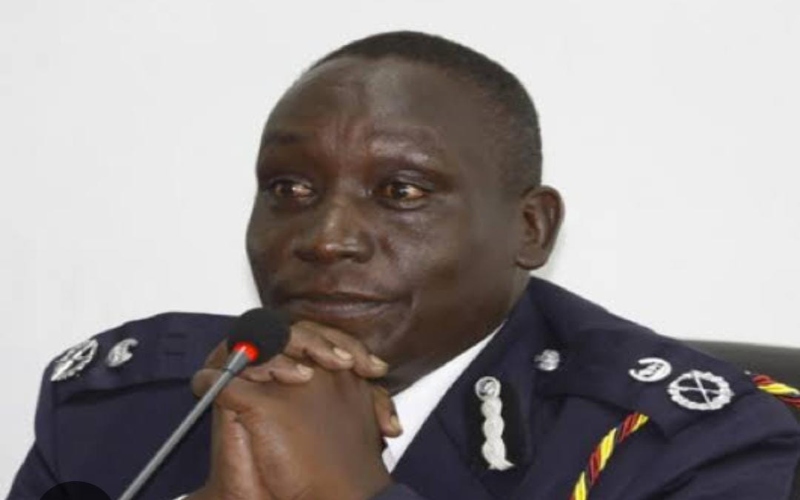South Africa governing alliance emerges as new parliament convenes

The SABC report came as the newly elected parliament was convening for the first time and lawmakers were in the process of being sworn in.
The African National Congress has agreed to form a government of national unity for South Africa with three other parties, including its largest rival, the pro-business Democratic Alliance, public broadcaster SABC reported on Friday.
The ANC, which has been in power since the 1994 elections that marked the end of apartheid, lost its majority for the first time in a May 29 vote and two weeks of intensive behind-the-scenes talks with other parties came down to the wire.
More To Read
- Report links 60,000 penguin deaths to sardine decline, poor fisheries management
- Zuma’s daughter resigns from Parliament amid claims she sent South African men to fight in Russia-Ukraine war
- Inside the rise of news influencers transforming media in Kenya, Nigeria and South Africa
- Ramaphosa hits back after Trump says South Africa won’t be invited to 2026 G20 summit
- G20: South Africa hosts summit in shadow of US boycott
- US bars Mandela Foundation Chair in latest diplomatic flashpoint with South Africa
The SABC report came as the newly elected parliament was convening for the first time and lawmakers were in the process of being sworn in. The chamber will later elect its speaker, deputy speaker and the country's president.
"Today marks the beginning of a new era where we put our differences aside and unite for the betterment of all South Africans," said Sihle Zikalala, a member of the ANC's governing body, in a post on X.
DA leader John Steenhuisen would give an address at 1.15 p.m. (1115 GMT) on the outcome of negotiations, the party said.
SABC said the unity government would include the ANC, the DA, the socially conservative Inkatha Freedom Party and the right-wing Patriotic Alliance. The DA would get the post of deputy speaker of the National Assembly, it said.
President Cyril Ramaphosa, the ANC leader, is expected to win a new term in office under the terms of the agreement with the three other parties voting for him, according to a report on the TimesLive news website.
Details of the agreement between the parties and what policy concessions the ANC made to its new partners were not immediately made public.
South Africa's rand currency was trading up about 0.3% against the dollar, helped by reports by the SABC and other local media of a deal including the ANC and DA, which has been the preferred option in the eyes of markets and investors.
MARKETS LIKE DA
Chief Justice Raymond Zondo formally opened the new session of parliament at 10:00 a.m. (0800 GMT) and the process of swearing in lawmakers began. The session was taking place in a Cape Town convention centre as the parliament complex was damaged by fire in 2022.
As of Thursday night, the ANC had said other parties, including the DA, had agreed to take part but a precise deal had yet to be nailed down.
Helen Zille, one of the senior DA officials on the party's negotiating team, said on Friday morning details were still being ironed out and DA lawmakers would support Ramaphosa for president "if the deal is signed".
"We are going to have to work until the very last minute to get an agreement in place," she told public broadcaster SABC.
The ANC won 159 out of 400 seats in the National Assembly while the DA got 87. The populist uMkhonto we Sizwe (MK) party led by former President Jacob Zuma has 58, the hard-left Economic Freedom Fighters 39 and the Inkatha Freedom Party 17.
The ANC's central dilemma since the election has been whether to work with the DA, which investors like because of its free-market policies but is unpopular with ANC voters who see it as a defender of the privileged white minority's interests.
The inclusion of the IFP, with its ethnic Zulu base, may help sweeten the DA pill for ANC voters. The Patriotic Alliance draws its support from the coloured (mixed-race) community.
London-based research firm Capital Economics said in a note that the prospect of a coalition involving the ANC and DA was being well received by investors because there was expected to be policy continuity or even an acceleration of reforms.
Another reason was that the EFF and MK would be excluded from policymaking, it said.
"Both parties (the EFF and MK) had set out radical agendas, including rapid land redistribution, widespread nationalisations and increased welfare support," Capital Economics said. (Additional reporting by Nellie Peyton, Tannur Anders and Sfundo Parakozov; Writing by Estelle Shirbon; Editing by Gareth Jones, William Maclean)
Top Stories Today

















































